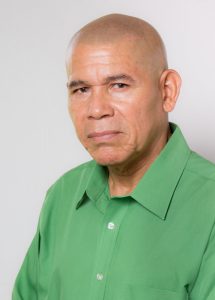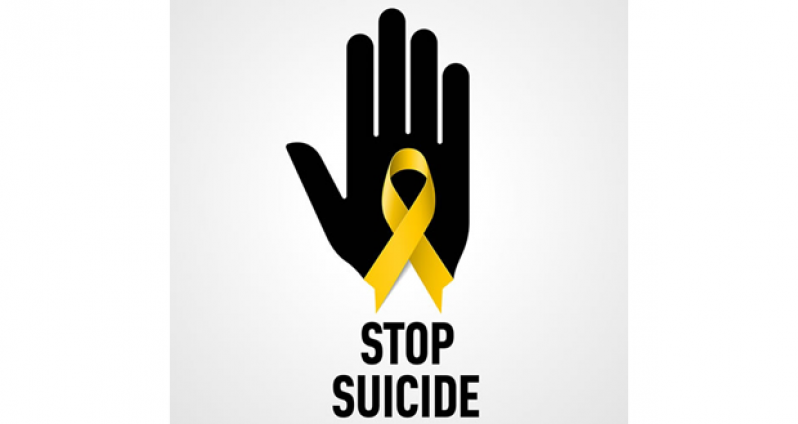-mental health clinics to be built in all regions
By Tajeram Mohabir
“ANYONE can be a victim.” Rox’s sober reflection on suicide would register with many families who have had to live through the tragedy of their loved ones taking their own lives.

But Rox, a policewoman, makes yet another sobering reflection: “Everyone has a role to play in prevention.”
Though she came forward bravely to tell her story, Rox asked that her real name not be publicised because she fears being ridiculed by members of the public. As a policewoman, she is expected to be a ‘strong’ woman. And aside from this, the act she attempted is illegal.
The young mother, a divorcee, is nevertheless “happy to be alive”, and believes that God wanted her to live.
The law enforcement officer related that she was driven to the edge after her son — whom she toiled to ensure lives a comfortable life and get an education — deserted her home to live with another family member, so that he can enjoy a “freer” life.
The boy was 16 years old at the time, and was in fifth form preparing to sit the Caribbean Secondary School Certificate (CSEC) examination.
According to his mother, “He had too many friends in the street, some of whom played a role in misleading him.”
And though she attempted to take her life because she was terribly upset about his decision, the boy never changed his mind.
Ever since that incident, Rox has been taking life into her stride. She told this publication that she is coping well in getting over the “unfortunate situation”. She has been counselled by family members and friends, but believes that the regional authorities can do more in all that they do to stop persons from committing suicide.
According to the mother of five, home visits by social workers can work as well as stronger policing of the sale of poisonous substances, especially to farmers.
Rox, a Berbician, tried to take her life by ingesting kerosene. The policewoman, in the line of duty and even off duty, has counselled many men and women in stressful situations; but, she noted, everyone needs support at times.
A few weeks ago, vibrant social activist Zenita Nicolson committed suicide by ingesting carbon tablets.
Seek help
To many, Nicolson was seen as strong enough to avoid such a dreadful act, but Rox said, “Persons, from time to time, get into situations that are overbearing, and they need to seek help to get out”. Suicide is 100 per cent preventable.
Savitri (not her real name), a housewife who lives on the East Coast of Demerara, told the Guyana Chronicle that about two years ago she contemplated suicide to escape her abusive husband. The mother of two related that through counselling from family members and members of her church, she was empowered to rethink her position. Today Savitri has a greater appreciation for, and a broader perspective of life; and with the intervention of the church, her husband has managed to curtail his physically abusive and drinking habits.
According to the young mother, even though the relationship with her husband is not perfect, her life is far better. Savitri believes that faith-based organisations can and should play a key role in the national fight to prevent suicide.
With a reported rate of 44.2 suicides per 100,000 people, when the global average is 16 per 100,000, Guyana has been listed by PAHO/WHO as having the highest suicide rate in the world for 2012. However, local health authorities continue to question the data.
When the statistics by PAHO/WHO were released in September 2014, the Ministry of Health under the former People’s Progressive Party/Civic (PPP/C) administration, said the figures were 34.7 suicides per 100,000.
Erroneous data
According to current Minister of Public Health Dr George Norton, the suicide rate being reported by the local and international media is wrong. He noted that the data being reported was not subject to scrutiny, and what was worse, was released without the permission of the ministry.
He related that data from the former ministry appears to be more accurate, since from all accounts it was verified.
While both Rox and Savitri were counselled by family members, with the latter also getting help from a church, a large number of Guyanese do not seek help. And outside of their family support system, the options are extremely limited.
Guyana has less than five psychiatrists and more than 100,000 Guyanese suffering from some form of mental health disorder. According to the draft National Mental Health Strategy for Guyana 2015-2020, between 78,000 and 114,000 Guyanese are suffering from a mental disorder and require some level of mental health care service.
Dr Norton told this publication that his ministry has recognised the shortage of mental health specialists, and has begun work to train persons to fill the gap.
Strong central unit
He said the objective now is to build a strong Mental Health Unit, which will gather information in regions and work to reduce the high number of mental health cases. Dr Norton related that the Public Health Ministry intends to build mental health clinics in every region, and will be moving aggressively to tackle the problem.
A few months ago, the Guyana Police Force, through the Ministry of Public Security, established a hotline to talk persons with suicidal thoughts out of committing the act. Efforts have also been made to police the sale of dangerous chemicals to farmers.
Dr Indhira Harry, in a presentation earlier this year titled: “Profile of suicidal behaviour in Guyana: A retrospective study from 2010-2012”, told the Caribbean Public Health Agency’s (CARPHA) 60th Health Research Conference in Grenada that from 2010-2012, some 359 persons in Guyana committed suicide by drinking poison, of which 191 were men. Local health workers say deep poverty in rural areas, high levels of alcohol abuse, and easy access to deadly substances are some of the chief contributors to the scourge.
While all stakeholders have agreed that everyone has a role to play in the prevention of suicide, it will require the collective will of all to make a meaningful change in addressing the problem.



.jpg)








